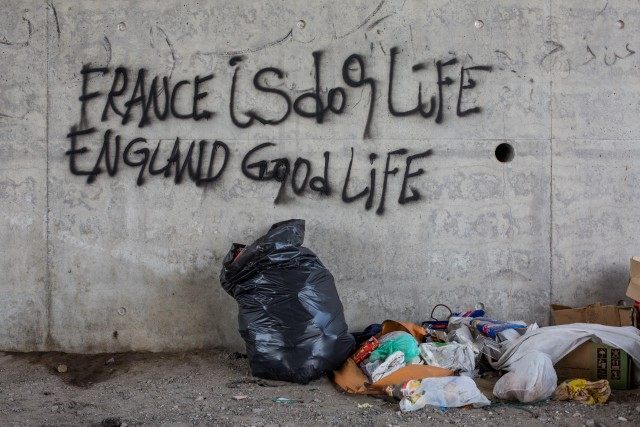The British and French governments have declared that the world is facing a “global migration crisis”. They have called countries from across Europe and Africa to assist in tackling the wave of migration currently washing across the continent. Meanwhile, the Prime Minister David Cameron has warned that the mayhem in Calais is likely to last all summer.
In a joint statement published by the British Telegraph newspaper and French Journal du Dimanche, the British Home Secretary Theresa May and her French counterpart Bernard Cazeneuve said that African migrants wrongly think the streets of Europe are paved with gold.
“What we are currently facing is a global migration crisis,” they wrote. “This situation cannot be seen as an issue just for our two countries. It is a priority at both a European and international level. Many of those in Calais and attempting to cross the Channel have made their way there through Italy, Greece or other countries. That is why we are pushing other member states – and the whole of the EU – to address this problem at root.
“The nations of Europe will always provide protection for those genuinely fleeing conflict or persecution. However, we must break the link between crossing the Mediterranean and achieving settlement in Europe for economic reasons. Together, we are currently returning 200 migrants every month who have no right to asylum.”
The Home Office has announced a consultation on plans to reduce the weekly cash allowances of £36.95 paid to failed asylum seekers as a first step towards making Britain a less attractive destination. 14,000 illegal immigrants are currently receiving the payments. The consultation will be launched in the next few weeks. But figures show that the number of illegal migrants detained in Britain has soared by a fifth since the Calais crisis began.
In the long term, May and Cazeneuve said that the answer was to tackle the economic problems in Africa that prompt people to seek a better life in Europe. “We must help African countries to develop economic and social opportunities so that people want to stay. This means a better targeting of development aid and increased investment,” they wrote.
Calais has seen migrants storm the Eurotunnel for a fourth night in a row, with more than 1,000 migrants breaking through fence lines, held back by the French police. Last September Britain pledged £12 million to bolster security in Calais, plus a further £1.4 million for a secure lorry park.
Last week, £7 million more was added to provide increased security at the Channel Tunnel railhead at Coquelles. A second fence line at Coquelles is due to be completed at the end of this week.
But lorry drivers are having to wait on average for 18 hours to reach the tunnel on the British side, a delay which the Freight Transport Association has calculated is costing the British haulage industry £750,000 a day. The situation has been worsened by striking French ferry workers who are burning tyres on roads leading from the port, further holding up traffic.
James Hookham, Deputy Chief Executive of the FTA said the situation was “unacceptable”, adding “This is the country’s GDP and export standing still in these horrendous queues caused by the situation in Calais.”
The Prime Minister, David Cameron, has agreed that the situation is “unacceptable”, but warned: “This is going to be a difficult issue right across the summer. I will have a team of senior ministers who will be working to deal with it, and we rule nothing out in taking action to deal with this very serious problem.”
He added: “We are absolutely on it. We know it needs more work.”
It is now estimated that more than 5,000 migrants are currently camping out in Calais looking for a way to get into England. That figure is expected to increase to 10,000 by the end of August.

COMMENTS
Please let us know if you're having issues with commenting.